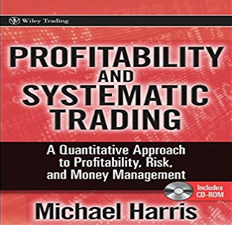Many traders and investors lack discipline and clear objectives. Spasmodic actions lead to losses and might eventually cause uncle point, or even ruin.
Passive investors
Let us start with passive investors because of the dominance of this style. Looking at daily price changes and worrying about financial news developments could lead to a loss of discipline, which is required for the success of this style of investing. In the case of passive investors, a disciplined approach involves a review of the portfolio performance annually to determine whether it meets the long-term objectives. More frequent reviewing might lead to a loss of discipline and a desire for a tactical approach. While there is nothing wrong with the tactical approach, it is not suitable for passive investors and their objectives.
Tactical investors
Tactical investing requires analyzing market conditions. A successful analysis of the market is beyond the capabilities of most individual investors and even challenging for a large fraction of professionals. Due to the conflicting forecasts that are an inevitable outcome of the existence of both bulls and bears in all markets at all times, actions might lead to cognitive dissonance, erratic behavior, and large losses.
Financial social media presents tactical investors with many alternatives, unlike in the past, and this often leads to a frantic search for the best manager who can generate wealth or the best newsletter. However, long-term success requires discipline to stay invested in a specific program. Many tactical investors abandon a program after a downturn and before the next rise in equity and move to another near the peak of the rise in equity and before a drawdown. If the typical drawdown is 10%, as an example, switching managers three times could cause losses of nearly 30%. We saw this behavior recently, with tactical investors frantically moving to managed futures after a good run last year. The drawdown from the all-time highs of two popular managed futures ETFs is close to 15% at this point, and these investors have started panicking. Success in tactical investing requires discipline. If the objective is to have managed futures in the portfolio, this must be done in a systematic way rather than in a spasmodic way.
Traders
Many traders think trading is about becoming rich. Although this is possible, it is more like a lottery ticket. Successful trading could make someone richer, but it is unlikely to make anyone rich. Traders who try to become rich have a higher probability of reaching uncle point. This is due to their taking large risks as a fraction of their capital. The market wizards of the past suggested not risking more than 1%–2% of equity in a single trade. Many traders risk 10% or even 50%. Others try to use the “Kelly Criterion” to maximize equity growth and, in the process, hit the uncle point due to large bets. The Kelly criterion guarantees optimal equity growth without ever getting ruined, but it does not exclude the possibility of an uncle point.
For most traders, trading is a recreational activity. Rich investors also trade even intraday while risking fractions of a basis point for chasing outliers, especially with options. When they lose, the amount is negligible given their account size. However, those who plan to trade for a living face the challenge of covering expenses. This can cause stress and might lead to a loss of discipline. My suggestion is to never trade for a living. There is a high probability of reaching the uncle point, although, for some individuals with good skills and discipline, it may be doable. But probability theory says it is not doable for anyone selected at random.
Summary
Switching from one financial adviser to another, from one fund to another, and from one financial newsletter to another in search of a way to grow a portfolio might lead to loss of discipline, accumulated losses, and eventually uncle point.
Disclaimer: No part of the analysis in this blog constitutes a trade recommendation. The past performance of any trading system or methodology is not necessarily indicative of future results. Read the full disclaimer here.
If you found this article interesting, you may follow this blog via RSS, Email, or Twitter.







